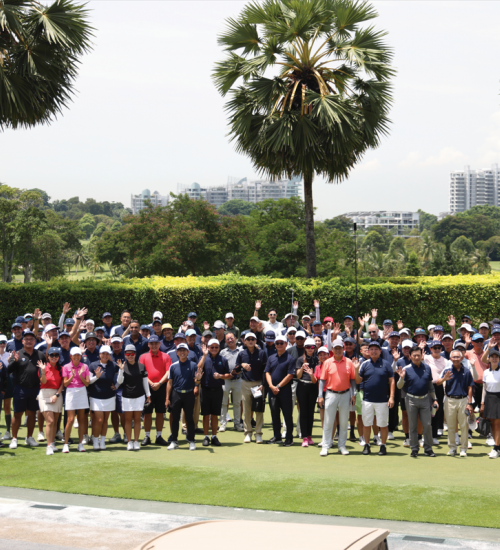“More than 90 per cent of children aged four years or younger are now using devices with little control over how they engage with them,” shares Dr. Mohamed ‘Mo’ Dirani, founder and managing director of plano Pte Ltd. The company has developed an app to help manage device use and curb myopia among children.
“Science has shown that inappropriate device use can cause adverse health outcomes in children, including mental illness, screen addiction and myopia,” Dr. Mo says. Today, myopia has reached epidemic proportions in developed countries, affecting up to 80 per cent of young people in some countries like Singapore, he adds.
An eye health researcher, Dr. Dirani is concerned by the link between excessive device use and myopia in children. That got him to establish plano to develop a way to manage smart device use and reduce the prevalence of myopia – still lacking despite solid research-based evidence.
With institutional support and a team of experts in ophthalmology, public health and computer science, as well as the backing of 10-20 years of research, plano is now addressing the problem with an app-based platform that instils healthy and responsible device use among children.
Dr. Dirani believes that the app alone will be insufficient in tackling the problem, and proposes a coordinated, multidisciplinary approach involving the government, industry and research institutes.
- THE INITIATIVE TAKES OFF
- A TIMELY RESPONSE
- A FUTURE FOR THE APP
From conception to development and eventual launch of the app, plano has received three rounds of incubator funding from the Singapore Eye Research Institute-Singapore National Eye Centre (SERI-SNEC) Ophthalmic Technologies Incubator Programme. It also obtained external funding from the National Health Innovation Centre (NHIC), along with angel investors. Currently, plano is raising funds for its series A round.
The company is adopting a multifaceted monetization strategy. Although the app, along with most of its functions, is free to download, plano has a paid premium model with premium features. The app is also a valuable digital real estate for paid advertising.
Plano is incentivizing healthy device use by rewarding children with points that their parents can use to purchase device-free and family-orientated activities from the in-app plano store. It has also developed commission-based partnerships with hundreds of vendors who list their products and activities on the plano shop.
Based on the way children interact with their devices, plano can make direct commission-based referrals to optometrists and other eye health service providers.
“From its large userbase, plano is developing the world’s first de-identified database on lifetime myopia progression in children, and will use this information to consult external research bodies for a fee to answer important questions about device use as well as eye health in a representative sample of children,” Dr. Dirani concludes.
- THE INITIATIVE TAKES OFF
- A TIMELY RESPONSE
- A FUTURE FOR THE APP
A Timely Response
Over the next five years, over 6 billion people are predicted to be using smart devices worldwide. The figure for device uptake among children worldwide is also going up; many are starting to use devices at younger ages, putting them at greater risk of adverse health effects.
“As a consequence, there is an upward trajectory of adverse health outcomes particularly myopia,” notes Dr. Dirani. “Myopia is expected to affect half the world by 2050. Other device-related health problems are becoming more pervasive, including poor mental wellbeing, social isolation and poor posture.”
The major risk factors for myopia include insufficient time spent outdoors during early childhood and too much time on near work, which is why plano aims to increase time outdoors and decrease time on smart devices, he explains.
Meanwhile, there is an increase in awareness and appetite by parents for help, which demonstrates the need for a solution like plano. The app captures de-identified data to better understand the risk factors of myopia among children. plano will assist the Government to develop policy for eye care service delivery and resource allocation by analysing the captured data. This feature further differentiates plano as a product from all parental management apps.
- THE INITIATIVE TAKES OFF
- A TIMELY RESPONSE
- A FUTURE FOR THE APP
A Future for The App
“We intend to disseminate the report worldwide so that parents, teachers and carers across the globe can be better informed,” Dr. Dirani says. “There are a few objectives that we hope to achieve through this report.”
The report brings together all of the most important and up-to-date data on excessive smart device use, including the adverse health effects such as myopia, other eye symptoms and psychological problems, Dr. Dirani explains. “This descriptive aspect of the report will serve to educate the public about these important health issues. Previously, the information available online was often inaccurate, fragmentary and difficult to understand. This report consolidates the information into a reliable source of knowledge.”
The guide also contains tips for carers to better manage device use and eye health among children, in line with plano’s core objectives. “The more parents and carers there are following these guidelines, the better our chances are of controlling the myopia epidemic.”
The report will also serve as a lobbying piece to support plano’s entry into different markets in other countries.











 Back
Back